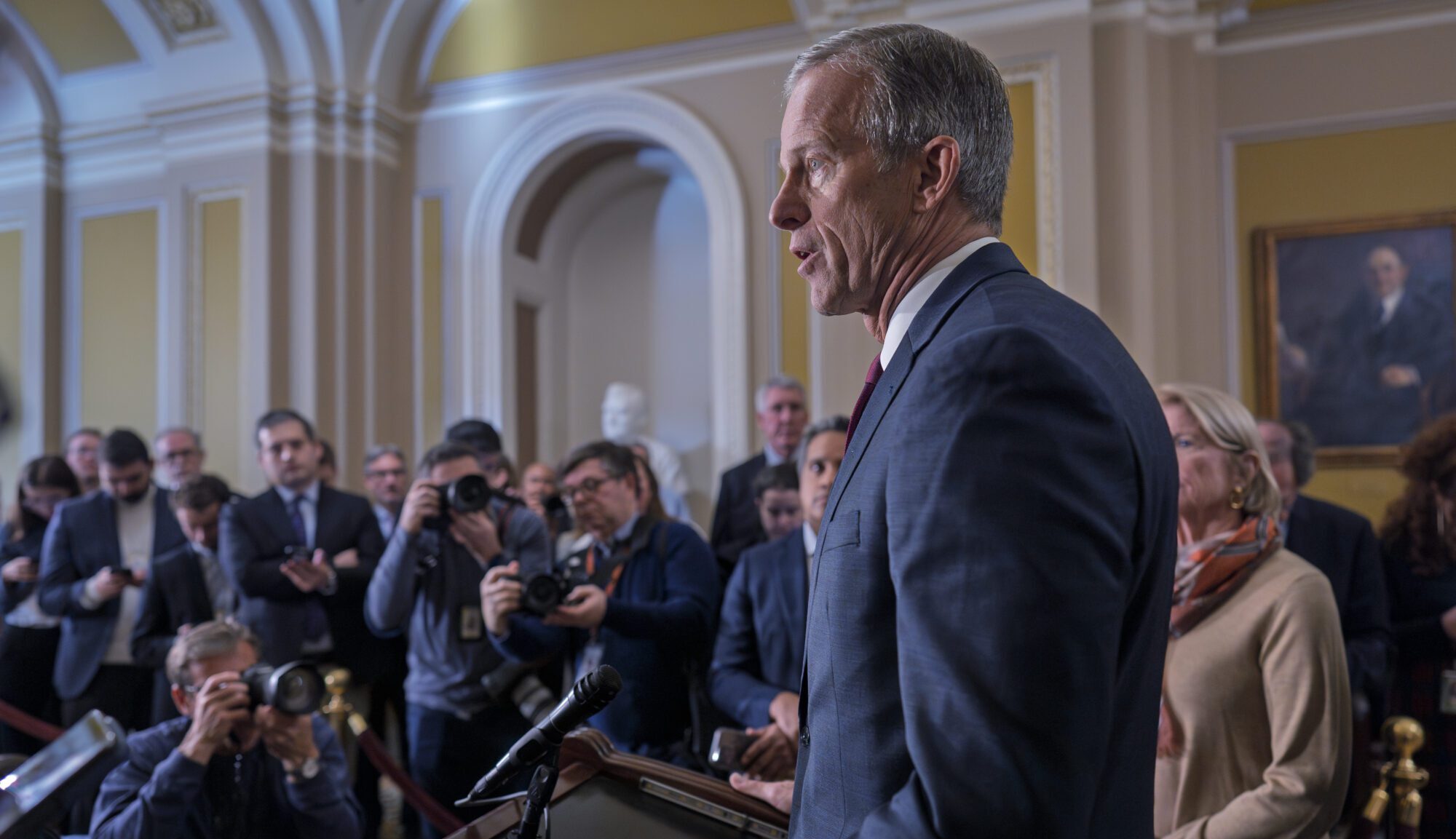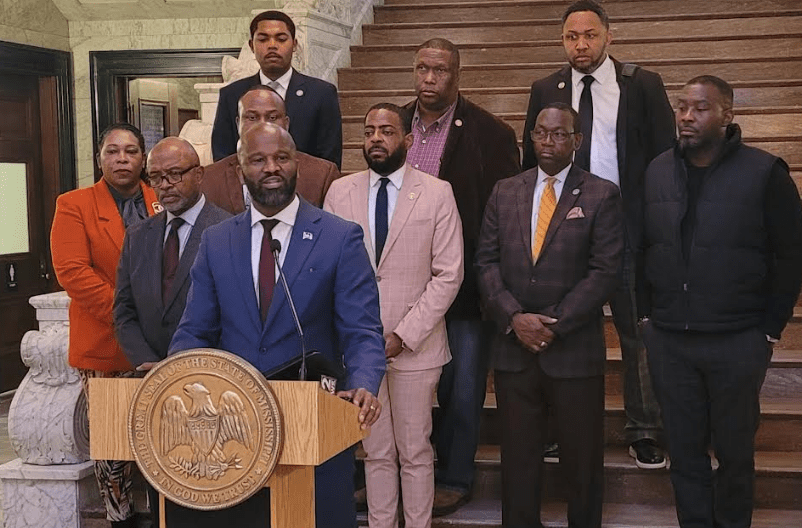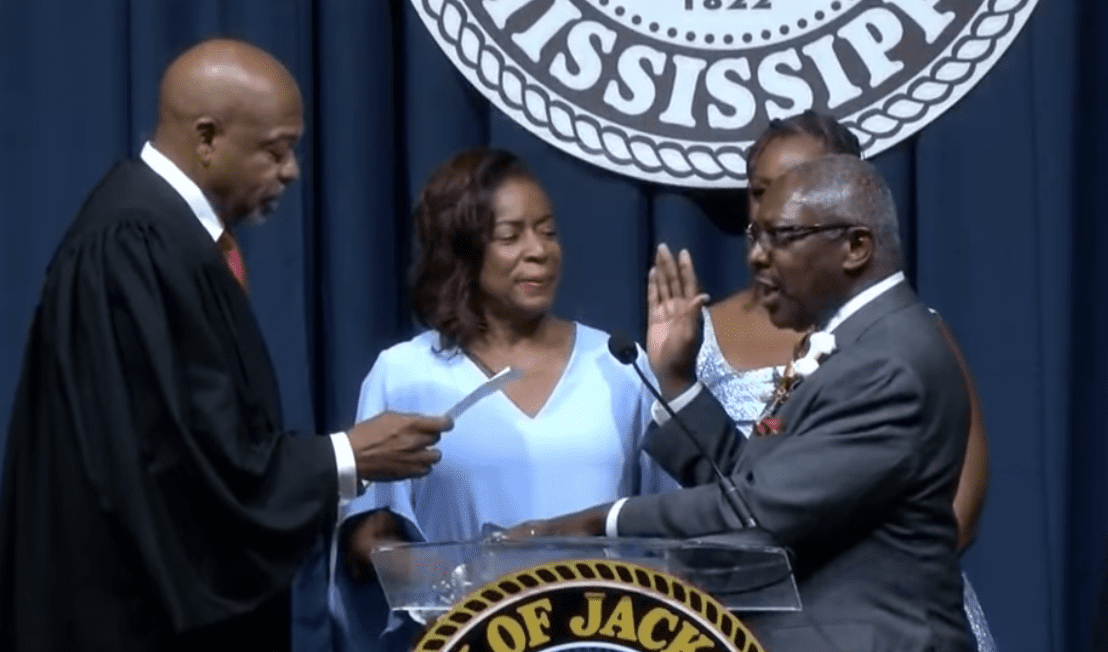As much of the legal wrangling that will most assuredly ensue as a result of the 5th Circuit’s ruling on the Minor, Teel and Whitfield case last week, it is important to see what it was they affirmed. Regardless of your interpretation of the law (and reasonable people can certainly disagree as to what the decision means both legally and practially), there is no debate as to what was actually proven in the case.
The facts of the case, as they affirmed them, are worth a read. As a sidenote, this rendition of the facts looks remarkably similar to Chapter 4 in the recently released Kings of Tort book (available now!).
From the decision
FACTS
This case concerns two separate bribery schemes, at the center of which lay Paul Minor, formerly a successful trial attorney in Mississippi. Minor had
a professional, if not personal, relationship with appellants John Whitfield and Wes Teel prior to the events giving rise to this prosecution. Acting as guarantor,
Minor arranged for Peoples Bank in Biloxi, Mississippi to loan Whitfield and Teel substantial amounts of money, purportedly in connection with each of their
campaigns for state judicial office. Although the structure of the loan transactions was similar, neither Whitfield nor Teel had any knowledge of Minor’s dealings with the other. As the two bribery schemes were thus distinct, we relate the facts surrounding each separately.I. Whitfield Scheme
In the fall of 1998, Whitfield was in the midst of a reelection campaign to retain his position as circuit judge on the Second Circuit Court of Mississippi.Minor arranged for The Peoples Bank in Biloxi, Mississippi, with which he had substantial deposits, to grant Whitfield two loans with Minor serving as
guarantor. Peoples Bank sought no collateral to secure the loans, but rather, in the words of the loan officer that handled the transactions, relied “simply on the
strength of Mr. Minor’s financial ability” to ensure repayment. On October 12, 1998, Peoples Bank loaned Whitfield $40,000 for “campaign funds,” which he
deposited into his campaign account. Later, after Whitfield’s successful reelection, Peoples Bank granted Whitfield another loan for $100,000 on November 19, 1998, the purpose of which was described in the loan documents as a “down payment on home.” Whitfield deposited the proceeds of this loan in the bank account of his then-girlfriend, who used the majority of the money to place a down-payment on a house for the two of them. Whitfield and his girlfriend spent the remainder of the loan proceeds to purchase home furnishings and to pay credit card bills. Whitfield never listed either loan on his campaign disclosure forms, nor did he report subsequent loan repayments made y Minor on the annual statements of economic interest that he was required to ile as a judge.2At trial, the Government contended that, as Whitfield had little or no money at the time, he accepted the loans never intending to pay them back himself. Indeed, by the time that the loans were eventually repaid at the insistence of bank examiners in 2002, Whitfield had only contributed a total of approximately $13,200 towards repayment of his loans and the interest thereon, $5,000 of which came from the campaign account originally funded by the $40,000 loan and approximately $5,650 of which was only made possible by a timely and unexplained cash deposit made to his personal checking account after his check to Peoples Bank had bounced. In contrast, over the nearly four-year period in which the loans were outstanding, Minor, either directly or indirectly, paid a total of approximately $178,600 in principal and interest on the loans.
At Minor’s request, the loans were structured as renewable short-term “balloon” loans, whereby every six months the accumulated interest became due
and the loan principal would either have to be renewed or paid in full. Under the Government’s theory of the case, this arrangement allowed Minor to keep
Whitfield on a string while Minor held the bank at bay. Every six months when the loans became due, bank officials would attempt to notify Whitfield by mail
and telephone, yet Whitfield was unresponsive and largely ignored his obligation. As a result, the bank would be forced to contact Minor, who, instead
of paying directly by check, would cash a check and renew the loans by making the necessary payments in cash. Whitfield would occasionally make small 3
payments with his own money, but, as noted above, the vast majority of the payments were made by Minor.Meanwhile, shortly after Minor arranged the loans for Whitfield in the fall of 1998, Minor’s law firm filed a potentially lucrative personal injury suit, Marks
v. Diamond Offshore Management Co., in the Second Circuit Court. Marks was injured while working on an off-shore oil rig, and he hired Minor & Associates
on a contingent-fee basis to represent him in the ensuing Jones Act suit against his employer. Although plaintiffs seeking personal injury damages generally
prefer to try their cases before a jury, Minor’s firm made the unusual request for a bench trial. Normally, the Second Circuit Court followed a procedure whereby
cases were randomly assigned among the four Second Circuit judges after the defendant had filed an answer. However, immediately upon filing their
complaint, Minor’s firm circumvented this process by filing a motion with Judge Whitfield seeking an expedited hearing to set a trial date, purportedly so that
Marks could obtain funds to cover his medical expenses as soon as possible. On February 10, 1999, twelve days before Diamond Offshore had even received a
summons (and thus had yet to file an answer triggering the random assignment procedure), Whitfield issued a “Fiat” requiring the parties to appear before him
in a hearing on the motion to set a trial date. At the hearing Whitfield set the case for trial in his own court, thereby effectively assigning the case to himself.Diamond Offshore’s attorneys became suspicious and investigated for a potential relationship between Whitfield and Minor & Associates. However, they discovered no connection (in part because Whitfield’s campaign disclosure forms revealed none), nor did Whitfield inform the parties of his financial arrangement with Minor. The case was tried before Whitfield June 20–22, 2000.
On July 12, 2000, Whitfield ruled in favor of Marks and awarded him $3.75 million in damages. Whitfield’s loans matured again soon thereafter, and, unbeknownst to Diamond Offshore’s counsel, on September 8, 2000, Minor made a $6,900 cash payment to renew them. On October 3, 2000, in response to Diamond Offshore’s post-trial motions, Whitfield reduced the award and issued a final judgment in Marks’ favor for $3.64 million, $3 million of which was attributable to noneconomic “soft” damages (pain, suffering, loss of enjoyment of life). Diamond Offshore later appealed to the Mississippi Supreme Court, which, sitting en banc, affirmed the finding of liability. Diamond Offshore Mgmt. Co. v. Marks, 2003 Miss. LEXIS 88, at *36 (Miss. Feb. 27, 2003), withdrawn, 2007 Miss. LEXIS 237 (Miss. Apr. 26, 2007). However, after conceding that “the trial court had ample material in the record to justify a high award of damages,” the court reduced the compensatory damages to $1 million (leaving a total award of $1.64 million), which it deemed to be “within the range of what we consider acceptable for [Marks’] pain, suffering, and loss of enjoyment of life.” Id. at *36–37.5
Soon after the close of the Marks trial, Whitfield resigned from the bench, and Minor helped him obtain a job at a prominent law firm in Gulfport, Mississippi. At that point, Minor deviated from his standard method of payment on the loans by funneling money through Whitfield rather than paying the bank himself. In May and December of 2001, Minor wrote two checks to Whitfield for $15,000 and $10,000 respectively. The checks were accompanied by cover letters attempting to conceal their true purpose, which was revealed when Whitfield issued checks to Peoples Bank in the exact same amounts as soon as Minor’s checks cleared. Afterward, Minor returned to his practice of making cash payments directly to the bank.
Eventually, in July of 2002, federal and state bank examiners conducting a routine audit of Peoples Bank discovered and criticized the loans, which by that point had been consolidated into a single obligation. As a result, the bank requested that the debt be satisfied in full. Minor agreed, and instead of paying it off himself directly, he enlisted the help of Leonard Radlauer, an attorney from New Orleans, to act as a strawman. Radlauer, who was a friend of Minor’s from law school, was also an acquaintance of Whitfield and had contributed to his campaign when Whitfield first ran for office. Minor asked Radlauer if he would pay off the Whitfield loan in order to “keep it out of the newspapers” and assured Radlauer that he was not “doing anything funny.” Radlauer agreed, and on August 27, 2002, Minor wired $125,000 to Radlauer’s account in New Orleans. That same day, Radlauer wired $118,652.42 to Peoples Bank to pay off Whitfield’s loan. Minor insisted that Radlauer keep the difference, but Radlauer eventually returned the money to Minor.
Some three weeks later, Minor traveled to New Orleans and approached Radlauer in a local bar appearing “panic stricken” and “very nervous.” Minor informed Radlauer that the Federal Bureau of Investigation (FBI) might want to talk with him and assured him that Whitfield would pay him back. When Radlauer protested that there was nothing to repay, Minor suggested that he misrepresent the true nature of the transaction to the FBI so as to conceal Minor’s role. In the meantime, a FedEx envelope from Whitfield’s law firm containing a falsified Whitfield promissory note to Radlauer for$117,013.21 had arrived at Radlauer’s office. The note was back-dated to August 26, 2002, the day before Radlauer had made the wire transfer to Peoples Bank. The envelope also contained a handwritten note from Whitfield thanking Radlauer for his “assistance” and “kindness” in paying off the loan and assuring Radlauer that he would “repay the entire amount plus interest.” Realizing that he had been drawn into a “shady” transaction, Radlauer immediately returned the false promissory note to Whitfield, and, in a letter sent to both Whitfield and Minor, insisted that he be kept out of any improper arrangements in the future. Neither man responded. By the following summer, Whitfield and Minor were under indictment.
II. Teel Scheme
In October 1998, at the same time that Whitfield was seeking reelection, Wes Teel was running for judicial office for the first time and facing a run-off election for a seat on the Eighth Chancery Court District of Mississippi. Just as he had done for Whitfield, Minor offered to guarantee a loan from Peoples Bank, in this case a line of credit up to $25,000. Teel accepted, and the loan closed on November 12, 1998. Teel withdrew $24,500, which he deposited in his campaign account, and with the help of those funds he won the election. Teel did not report the loan on his campaign disclosure forms.Again, at Minor’s request, the loan was structured so as to require a balloon payment or renewal every six months. As was the case with Whitfield, Teel ignored letters and phone calls from the bank when his loan matured six months later, so the bank contacted Minor. However, unlike Whitfield, Teel never made any payments at all on the loan with his own funds. On June 28, 1999, after having cashed a check a few days earlier, Minor paid approximately $1,200 cash to renew Teel’s loan, just minutes before making cash payments on both of Whitfield’s loans at the Peoples Bank branch in Biloxi. When Teel’s loan became due again in February of 2000, Minor enlisted the help of his friend and fellow attorney Richard (“Dickie”) Scruggs to act as intermediary in paying off the loan in full. In exchange for signing a 30-day promissory note, Scruggs gave Teel a check for $27,500 on February 23, 2000, which Teel used to pay off his loan. Minor then reimbursed Scruggs by check on March 9, 2000, thereby satisfying Teel’s obligation to Scruggs. Teel never contacted Scruggs regarding the promissory note again. Additionally, Teel failed to include the $27,500 check in his annual statement of economic interest for that year.
In the meantime, Minor & Associates was in the early stages of litigating Peoples Bank v. United States Fidelity and Guaranty (USF&G), which it had filed in the Eighth Chancery Court District the summer before Teel’s election. Minor’s firm represented Peoples Bank (the same bank that had made the loans to Whitfield and Teel) in a suit against its insurer, USF&G. Peoples Bank claimed that USF&G had a duty to defend it against a particular class of lawsuits being brought by its customers, but USF&G denied coverage under the bank’s insurance policy. Despite the fact that this was a complex insurance dispute, Minor’s firm had elected to try the case without a jury in chancery court, which is an equity court that generally handles matters such as divorce, child custody, juvenile delinquency, and property disputes. 10
Immediately upon filing the complaint, Minor again saw to it that his own judge of choice was assigned to the case by filing a motion for an expedited hearing to schedule a trial before Judge J.N. Randall, who was appointed to the bench by the Governor largely at Minor’s recommendation. Just as Whitfield had done in the Marks case, Randall issued a “Fiat” setting a hearing in his court and effectively assumed control of the case. However, Randall did not prove to be as cooperative as Minor would have liked. When USF&G moved to transfer the case to Circuit Court, Randall, who had never handled an insurance dispute before, granted the motion. Minor got “very upset,” and, in an ex parte conversation, convinced Randall to take the case back.
In discovery, Minor sought access to all of USF&G’s documents relating to Peoples Bank’s claim, but USF&G objected on the basis of attorney-client privilege and work product. Already overloaded with work himself, Randall assigned the discovery dispute to Teel, who, on October 16, 2000, rejected USF&G’s privilege claims and ordered all documents disclosed to Peoples Bank.
In response, USF&G filed a motion to reconsider with Randall, and Randall granted the motion and set aside Teel’s ruling. Minor was “extremely upset” and immediately called upon Randall in his chambers for another ex parte meeting. Minor upbraided Randall and convinced him to reassign the entire case to Teel,
and Randall obliged. 11After Teel took control of the case, USF&G’s attorneys moved to stay the proceedings pending the outcome of USF&G v. Omnibank, which was then pending before the Mississippi Supreme Court. See 812 So.2d 196 (Miss. 2002). In Omnibank, another bank had sued USF&G based on the same contractual provisions at issue in Peoples Bank, and the Mississippi Supreme Court’s decision would likely have resolved the dispositive issues in Peoples Bank as well. The federal district court in Omnibank had granted summary judgment in favor of the bank, finding that USF&G did have a duty to defend. See Ramsay v. Omnibank, 215 F.3d 502, 504 (5th Cir. 2000). On appeal, this court had certified the duty-to-defend question to the Mississippi Supreme Court. See id. On July 30, 2001, Teel concluded that the motion to stay was “well taken” and agreed to stay the case, but only for a month, until September 1, 2001. Teel did not reschedule the trial, which was set for the following December.
Therefore, when the Mississippi Supreme Court still had not reached a decision one month later, USF&G was faced with an imminent trial and the possibility of significant punitive damages. On December 18, 2001, Teel granted summary judgment for Peoples Bank on the duty-to-defend issue, reserving the issues of bad faith and punitive damages for trial. Fearful of a significant punitive damages award, USF&G agreed to enter into settlement talks. Teel served as the mediator, engaging in private discussions with each party in the attempt to reach an agreement. After these conferences proved unproductive, however, Teel took the unusual step of bringing the parties together to make an announcement. Teel declared that he was offended by USF&G’s failure to defend Peoples Bank and that, in his determination,$1.5 million (five times the amount of actual damages in the case) was an appropriate settlement figure. On December 21, 2001, fearing a worse outcome if they tried the punitive damages issue before Teel, USF&G agreed to the $1.5 million settlement. Just over three months later, the Mississippi Supreme Court issued its opinion in Omnibank, determining that USF&G had no duty to defend under the insurance policy. See 812 So.2d at 201–02.
Meanwhile, unbeknownst to USF&G’s attorneys, Minor had been providing other financial assistance to Teel (in addition to the loan transactions that had been completed the year before). In October of 2001 (after the one month stay had lapsed and the parties were preparing for trial in Peoples Bank), Teel, along with two other chancellors from the Eighth Chancery Court District, was under investigation by the Mississippi Administrative Office of the Courts—in Teel’s case for allegedly keeping reimbursement money for himself rather than paying office-supply vendors. Minor held several strategy meetings with the judges and hired a public relations firm to help with media exposure. On or about October 31, 2001, Minor flew Teel and the other judges in his private plane to Jackson for a meeting in these matters that Minor had personally arranged with the Mississippi Attorney General. Finally, in June of 2002, after Teel was acquitted of the criminal charges, Minor sent Teel’s attorney a check for $10,000 to cover part of the defense costs, for which he received a thank-you note from Teel.
If you can read these facts, as affirmed by the 5th Circuit, and make a plausible argument that nothing was done wrong, you certainly have a better imagination that I do.







